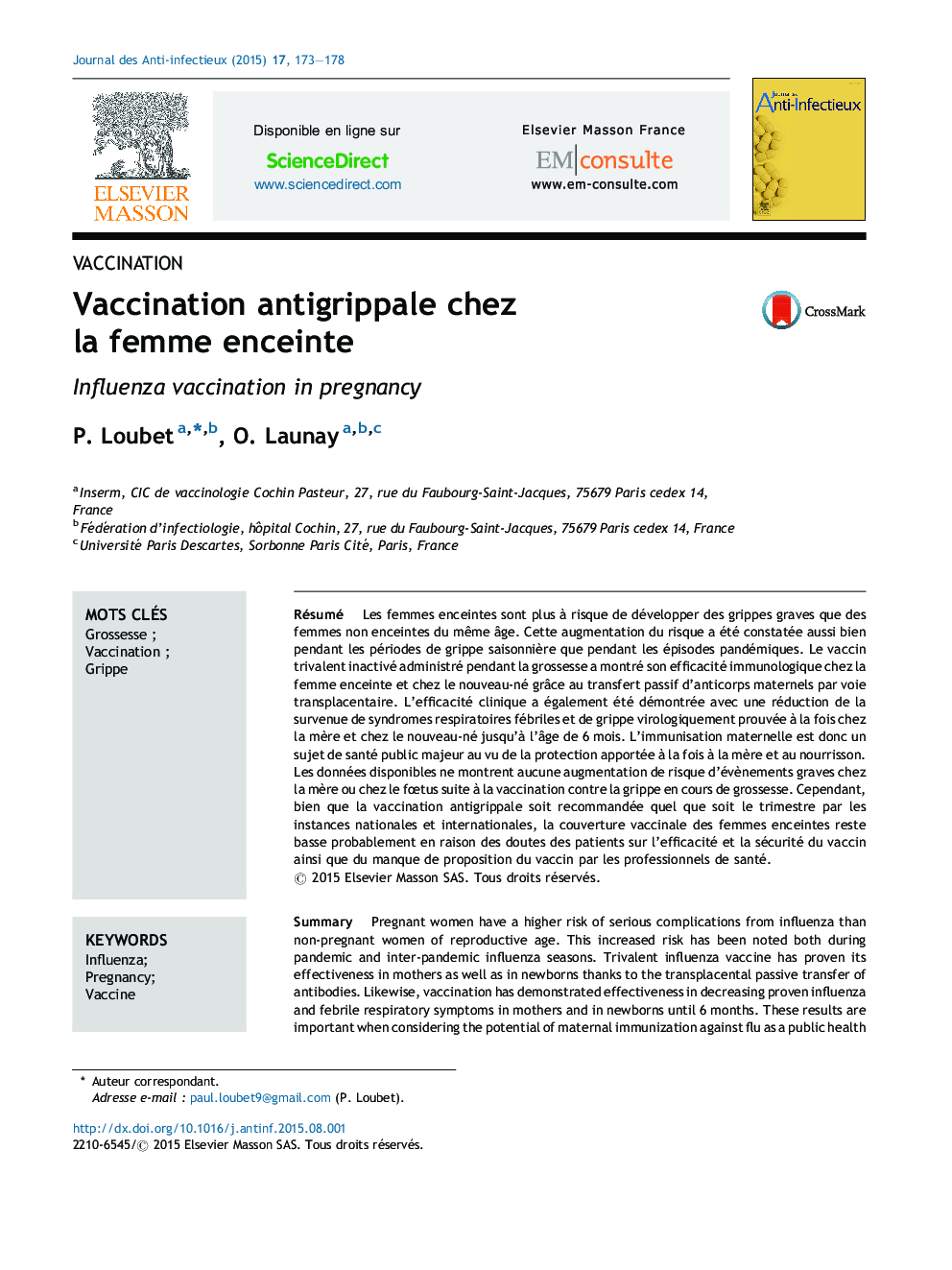| Article ID | Journal | Published Year | Pages | File Type |
|---|---|---|---|---|
| 3405377 | Journal des Anti-infectieux | 2015 | 6 Pages |
Abstract
Pregnant women have a higher risk of serious complications from influenza than non-pregnant women of reproductive age. This increased risk has been noted both during pandemic and inter-pandemic influenza seasons. Trivalent influenza vaccine has proven its effectiveness in mothers as well as in newborns thanks to the transplacental passive transfer of antibodies. Likewise, vaccination has demonstrated effectiveness in decreasing proven influenza and febrile respiratory symptoms in mothers and in newborns until 6Â months. These results are important when considering the potential of maternal immunization against flu as a public health intervention to protect both the mother and her infant against serious infectious disease. Available data suggest no evidence of an increased risk for any adverse event for both mothers and fetuses after vaccination against flu during pregnancy. However, although vaccination against flu is recommended at any trimesters by international and national policies, vaccine coverage remains low in pregnant women, possibly due to patient concern about the safety of the vaccine and lack of recommendation and offer of vaccination by healthcare providers.
Related Topics
Health Sciences
Medicine and Dentistry
Infectious Diseases
Authors
P. Loubet, O. Launay,
